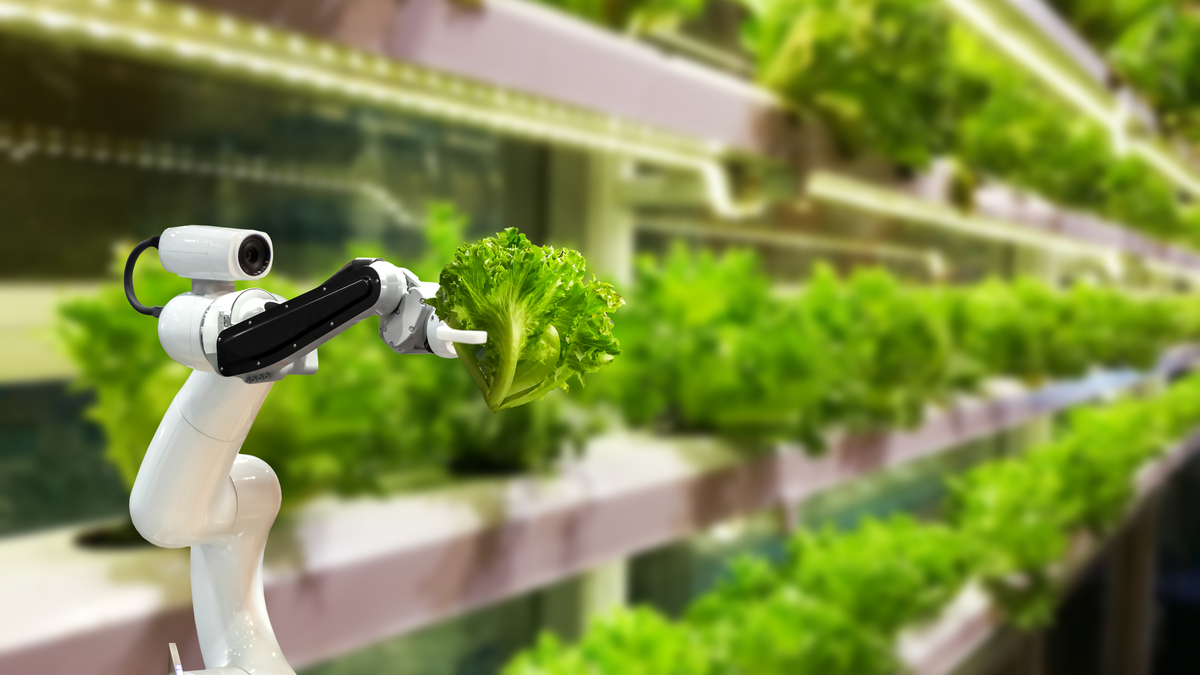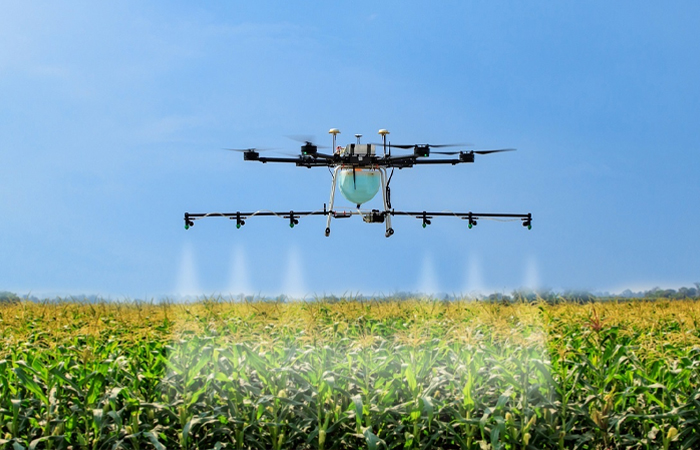Smart farming based on IoT solutions improves the entire farming system by monitoring the field in real-time. Smart farming based on IoT technology enables growers and farmers to reduce waste, increase productivity, vary the amount of fertilizer used, the number of trips made by agricultural vehicles and the efficient use of resources such as water and electricity. Predictive analytics and intelligent agriculture crop forecasting play a key role in helping farmers decide plans for crop production, crop storage, marketing techniques and risk management.
New agricultural applications such as Smart farming, precision farming and IoT enable the industry to improve operational efficiency, reduce costs, reduce waste and improve the quality of its yields. Smart farming is an emerging concept in which we integrate information and communications technologies ( IoT) that enable sensors, predictive analysis and automation to increase the number of harvests in a calendar year.
This study aims to identify IoT solutions in smart agriculture: (i) present a systematic review of the state of IoT deployment in smart agriculture and (ii) identify the use of hardware, platforms and network protocols as well as technologies, their applicability and proposed solutions. This review aims to identify the main device platforms, network protocols, data processing and technological application of smart farming to IoT in agriculture. In this review, 12 presented the communication and data acquisition technologies used in IoT solutions for smart farming and several cloud-based IoT platforms in these solutions.
Precision farming, which uses the IoT, relies on data collected from various sensors in the field to help farmers allocate sufficient resources to a plant. Smart farming supports sustainable and cost-effective agriculture by combining navigation, satellite and earth observation data to make it easier for farmers to make informed decisions about how they grow. In the past, farmers used a smart farming approach to collect data and then make informed decisions from that data.
Monitoring and collecting data on soil moisture, air temperature and humidity can improve crop yields on large local farms. Efforts are taken to improve the quality and quantity of agricultural products by making them smarter and connected, also known as precision farming, to improve the quality and quantity of agricultural products. The IoT Solutions (Internet of Things) refers to recent advances in intelligent agriculture, which is data-driven and uses artificial intelligence (AI) to make better decisions.
IoT-based smart farming will improve the entire farming system by monitoring the field in real-time. Smart farming based on IoT solutions will enable growers and farmers to reduce waste and increase productivity by varying the amount of fertiliser used, the number of journeys made by agricultural vehicles and the efficient use of resources such as water and electricity.

Smart farming is a management concept based on providing the agricultural industry with the infrastructure to use advanced technologies such as big data, the cloud and the Internet of Things (IoT) to track, monitor, automate and analyze operations. Smart farming is an emerging concept that refers to the management of farms that use modern information and communication technologies to increase the quantity and quality of the products while optimizing the human resources needed. While the name may sound fanciful and futuristic, smart farming.
Intelligent sensors monitor every aspect of daily work, and IoT technology in agriculture enables farmers to automate the collection of real-time data to increase production volume, reduce costs, manage costs and improve the overall efficiency of many different aspects of agriculture. In the case of precision farming, intelligent farming techniques allow farmers to monitor the needs of each animal and adjust their diet to prevent disease and improve herd health. Farmers can make informed decisions about all aspects of their work, from livestock farming to crop production, using IoT sensors to measure environmental, machinery and metrics.
Smart farming uses sensors and big data to predict and make decisions that increase agricultural productivity. Smart farming has great potential for efficiency, productivity, precision and sustainability. It makes agriculture more profitable and feeds a growing global population. It enables the development of sophisticated and innovative applications that benefit farmers and the agricultural sector.


